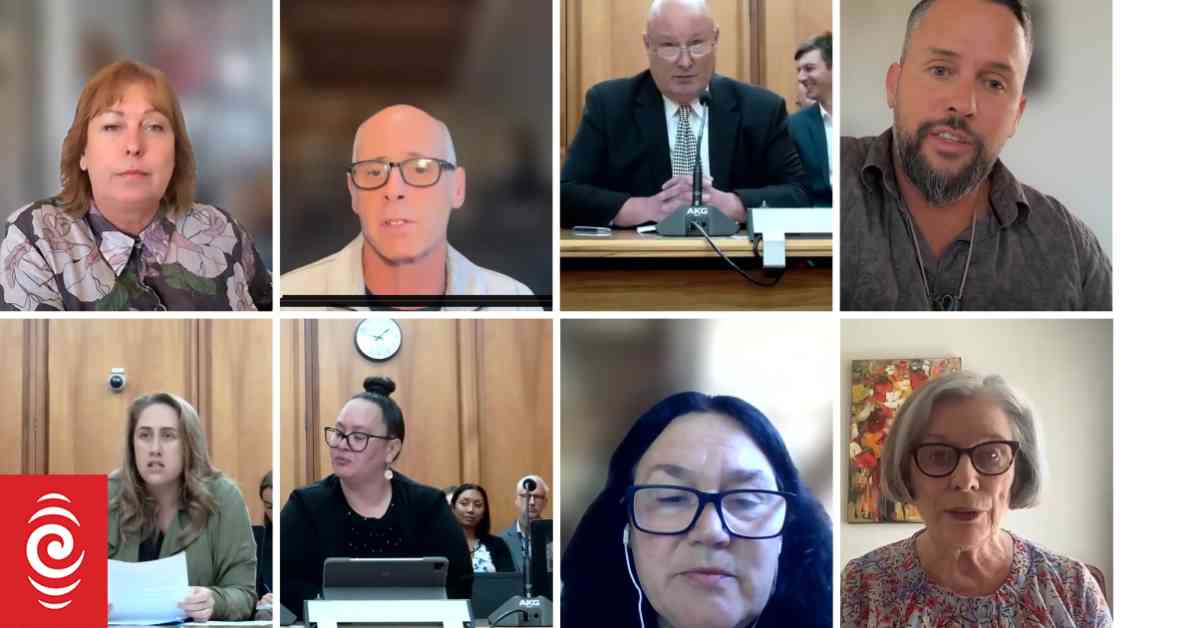Live Stream: Select Committee Treaty Principles Bill Submissions Hearings Start Now
Today marks the commencement of oral submissions for the Treaty Principles Bill, a contentious piece of legislation that has sparked significant debate across New Zealand. The architect of the bill, David Seymour, is prepared to face criticism and scrutiny as he defends his creation before Parliament. Despite potential backlash, Seymour remains open to new ideas that may alter his perspective on certain aspects of the bill.
Seymour’s assertion that dividing people by race is a form of racism sets the stage for a heated discussion during the hearings. He questions the merit of segregating individuals into distinct groups based on their heritage and emphasizes the importance of recognizing people as individuals first and foremost. This viewpoint challenges conventional notions and sets the tone for a robust debate among MPs.
Following Seymour’s submission, Lady Tureiti Moxon, an influential figure within the Māori community, vehemently opposes the bill. She asserts that the proposed legislation undermines the integrity of the Treaty of Waitangi, casting doubt on its legitimacy and intent. Moxon’s impassioned plea resonates with the 42,000 individuals who marched to Parliament in protest against the bill, highlighting the widespread opposition it faces.
Ngāti Toa Rangatira chief executive Helmut Modlik adds weight to the argument against the bill, claiming it tarnishes the Crown’s apology and settlement with his iwi. He accuses the legislation of distorting the fundamental principles of the Treaty and perpetuating misconceptions that threaten the cultural fabric of New Zealand. Modlik’s stance reinforces the growing sentiment that the bill is a misguided attempt to rewrite history.
Legal academic Carwyn Jones further dissects the flaws in the Treaty Principles Bill, highlighting both procedural and substantive shortcomings. Jones argues that the bill’s proposed changes to the legal interpretation of the Treaty lack consultation with all relevant parties, raising concerns about its efficacy and impact. His scathing critique underscores the widespread skepticism surrounding the bill’s viability and purpose.
As the hearings progress, a diverse range of perspectives emerges, each shedding light on the complexities and implications of the Treaty Principles Bill. From polling data presented by theFacts group to impassioned pleas from migrant communities, the debate surrounding the bill intensifies. Calls to reject the bill based on misinformation and disinformation add layers of complexity to an already contentious issue.
Electoral law expert Barrister Graeme Edgeler offers a legal perspective on the bill, pointing out potential ambiguities and challenges it poses in practice. Edgeler’s insights underscore the need for a nuanced approach to interpreting and applying the Treaty principles in a legal context. His expert opinion adds depth to the ongoing discussions surrounding the bill’s implications for New Zealand’s legal framework.
Amidst the diverse array of submissions, lobby group Hobson’s Pledge presents a nuanced stance on the bill, supporting certain principles while opposing others. Trustees Thomas Newman and Eliot Ikilei articulate their concerns about the bill’s impact on sovereignty and equality, advocating for a more balanced approach to addressing historical injustices. Their views reflect the intricate balance of perspectives that the hearings have brought to light.
As the committee grapples with the overwhelming response to the Treaty Principles Bill, Chair James Meager acknowledges the challenges of accommodating all oral submissions. Despite the logistical constraints, Meager emphasizes the importance of a balanced and representative hearing process that considers a wide range of views. The committee’s commitment to upholding democratic principles in the face of unprecedented public engagement underscores the significance of this legislative debate.
In conclusion, the Treaty Principles Bill hearings offer a microcosm of the complex and nuanced discussions surrounding New Zealand’s historical legacy and future trajectory. As stakeholders from all walks of life converge to voice their opinions, the hearings become a testament to the enduring relevance of the Treaty of Waitangi in shaping the nation’s identity and values. The diverse array of perspectives presented in the hearings underscores the multifaceted nature of the bill and the profound impact it could have on New Zealand’s legal and social landscape.

















